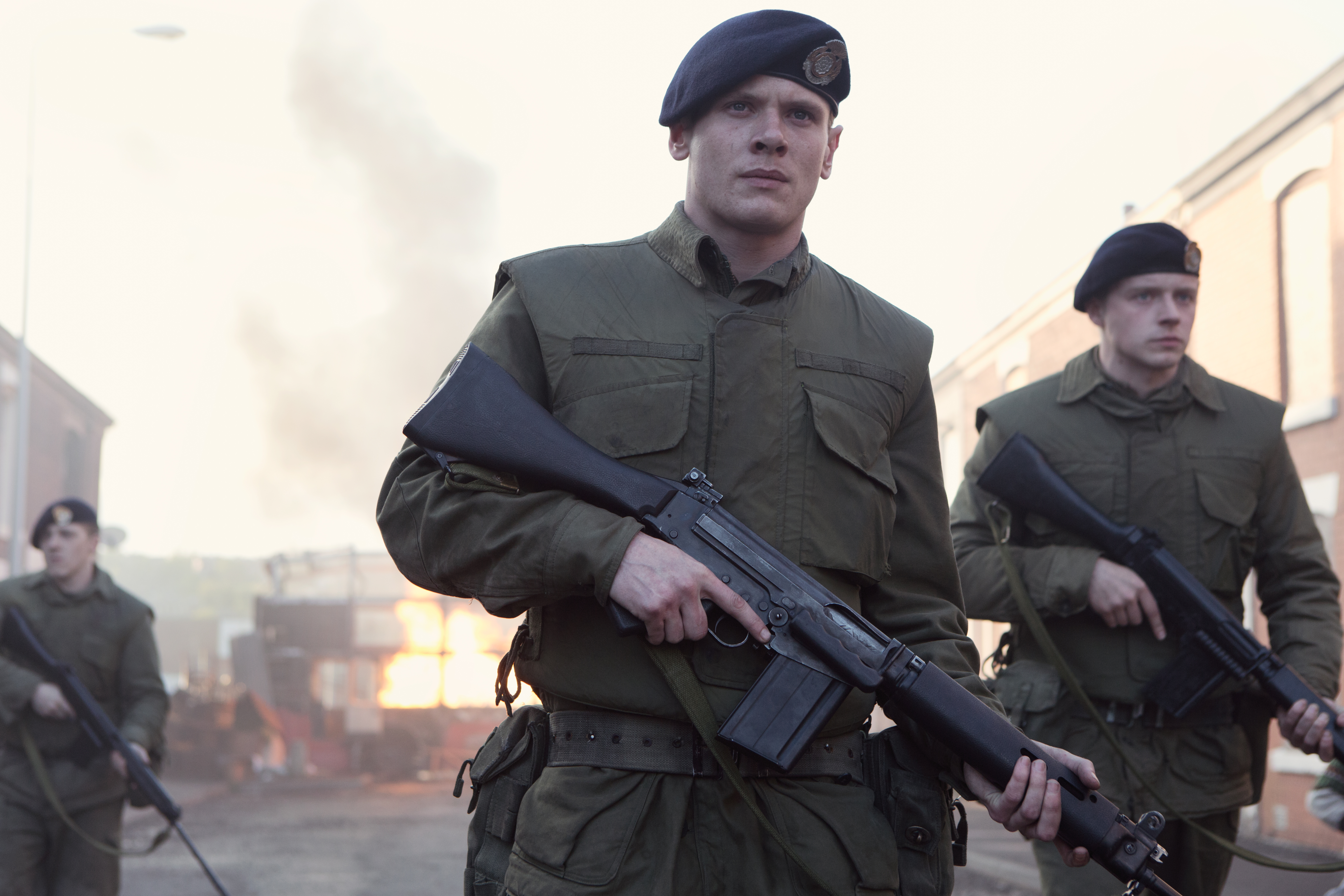For young soldier Gary (Jack O’Connell) and most of his British squad, Northern Ireland is more than another country. Dispatched there to patrol the volatile frontline between Catholic and Protestant factions is like being sent to the moon (a mission then only two years past). Is Belfast even part of the UK? Gary and his mates aren’t sure. None have passports or any education.
The Army is just a job, and we shall later learn that naive Gary used it to get out of an orphanage (where his kid brother still resides). In Belfast, the Irish are utterly alien and hostile—savages, seemingly, like Hollywood Indians. On Gary’s disastrous first patrol, at the sight of his convoy, all the women on a republican street begin slamming their trash-can lids to the pavement in warning—like tribal drums.
That warning goes unheeded. Twenty-five minutes into the picture, directed with brutal, kinetic grace by Yann Demange, Gary finds himself running for his life. No rifle, no backup, no idea where he is, behind enemy lines. IRA bullets fly around his head as he races down shoulder-width alleyways in a panic, camera pell-mell behind him, until he finds brief refuge in a backyard privy. (This is Ireland, and indoor plumbing is still a luxury in 1971.) There poor Gary sobs in fear, the smell of shit and his own blood in his nostrils; and you can’t help thinking of the similar ordeal O’Connell’s aviator endured in Unbroken.
The rest of ’71 is a pure, thrilling, suspenseful chase movie—the best thing I’ve seen thus far in the new year. And though running from monsters is a cinema standby (think of Aliens), the treacherous neighborhood politics are what makes Gary’s overnight odyssey so harrowing. Briefly protected by a Protestant militia-connected boy his brother’s age, the lad quizzes him about faith. (Here subtitles would help.) Are you Catholic or Protestant? he asks. Gary doesn’t even know; he was raised in a children’s home; his parents—if he ever knew them—are never mentioned. He’s totally disoriented, stunned from punches to the head, later concussed by a bomb. His age and innocence make him a hapless pilgrim (or potential martyr) in a place as terrifying as Fallujah today, like being caught between Shia and Sunni militias.
Demange and his screenwriter—Black Watch playwright Gregory Burke—have obviously seen the 1947 classic Odd Man Out, to which ’71 bears due comparison. But James Mason’s fugitive was there a man who knew his own sins, while O’Connell’s Gary has yet to commit any. (After his first act of violence, stunned by that moment, he reaches out to console his victim.) The politics swirling around Gary are meanwhile a moral murk: He’s double-crossed by his superiors and sheltered by his supposed adversaries. What he learns about his military—and government—is best expressed by an Irish ex-Army medic who stitches up his wounds (without anesthetic, of course): “They don’t care about you. You’re just a piece of meat to them.” By that time, Gary certainly looks it: bloodied, quivering, helpless. ’71 doesn’t pretend that better times are near (Bloody Sunday is just a year ahead), though it does finally proffer a few shreds of humanity against a future we know will be terribly bleak.
bmiller@seattleweekly.com
’71 Opens Fri., March 13 at Guild 45th and Meridian. Rated R. 99 minutes.








